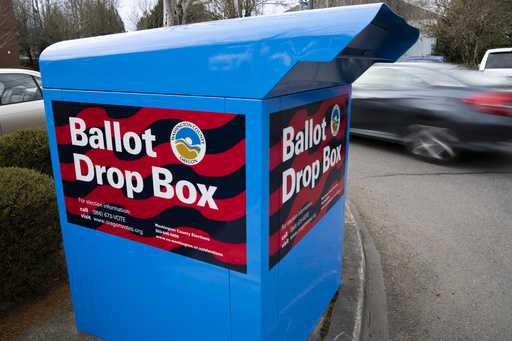RAYMONDVILLE, Texas (ValleyCentral) — One by one, residents of Port Mansfield took the podium last week to address the Willacy County Navigation District board.
They wanted to know why the navigation district hadn’t posted any information about the November election online — even though the deadline for candidates to submit applications was just days away. They had questions about the termination of leases. And they had compliments for members of the board who asked tough questions.
Perhaps the most pressing issue, however, involved a plan to move commercial cargo through Port Mansfield.
“It cannot and should not be destroyed by forcing and squeezing in an ugly, loud, potentially environmentally dangerous industrialized container port with, possibly, hundreds of 18-wheelers a week arriving in our tiny town,” said Kathie Bassler, who leases property in Port Mansfield. “This would be a disaster.”
As she attempted to discuss a recent newspaper article about the situation, board Chairman Chad Kinney politely interrupted.
The board limits public comment to 3 minutes per person. Her time had expired.
“Mrs. Bassler, we’re over the three minutes already,” Kinney said. “I appreciate it. Thank you.”
Bassler took her seat.
 A pelican rests on a wooden post in Port Mansfield on Aug. 14, 2024.
A pelican rests on a wooden post in Port Mansfield on Aug. 14, 2024.The navigation district board spent a significant part of the Aug. 14 meeting listening to public comments from Port Mansfield residents.
“Normally it’s the same people coming up, reiterating their same feelings. Which is fine. I get that,” Kinney said. “The hard part is we can’t answer.”
For decades, few people showed up for navigation district board meetings.
“Now it’s a crowd,” said Jack Ficklen, a carpenter from Port Mansfield who started attending the meetings about 30 years ago. “Literally, for 25 years, there was myself and another fella that were the only people that ever came to these meetings. And we called ourselves John Q. Public.”
Many residents of Port Mansfield started attending board meetings in 2023, when the navigation district signed a “Marine Terminal Services Agreement” with a company based in Edinburg.
In meeting after meeting, they signed up for public comment to express frustration with the plan and encourage the navigation district to change course. The board didn’t respond.
“If it’s something that’s not on the agenda, we are not allowed to talk about it,” said Port Director Ron Mills, who runs the navigation district.
Under the Texas Open Meetings Act, the navigation district must post an agenda 72 hours before a board meeting.
The board can’t discuss anything that’s not listed on the agenda. Officials who break the law can be charged with a misdemeanor.
As a result, attorneys frequently advise people who serve on government boards not to respond to public comments.
 A barge floats past Port Mansfield on Aug. 14, 2024.
A barge floats past Port Mansfield on Aug. 14, 2024.“In years previous, under a different makeup of this board, we used to have a back-and-forth banter before the meeting where they would answer my questions, tell me I was full of BS or whatever, but we would have a discussion,” Ficklen said. “And that’s no longer allowed.”
With the board unable to respond, some Port Mansfield residents concluded the meetings aren’t worth attending.
“A lot of people don’t come because they say it’s a waste of time,” said Melissa Murphy of Port Mansfield, who regularly attends board meetings. “Because you can’t ask a question. And they don’t have to answer. So, you know, kind of why bother?”
Frustration with the board occasionally boils over.
On Wednesday morning, Patrick Tyler, a retired New York Times correspondent, said he wanted to speak with the board about a “question of fraud.”
“Would the board not like to hear that?” Tyler said.
Kinney told Tyler his three minutes had expired.
“So the board would not like to hear raising the question of fraud from a member of the public?” Tyler said. “I just want that on the record.”
In an interview, Mills said the navigation district attempts to address concerns brought up during public comment.
Mills frequently uses another part of the agenda, the port director’s report, to discuss issues raised during public comment. The navigation district also posts information online.
The responses from Mills rarely satisfy people who attend the meetings.
“We wish they would come talk to us. We wish they would be more transparent,” Murphy said. “That’s really, really, all we’re asking for — is transparency and fairness, and an opportunity to talk to our elected officials and get them to answer questions. It’s that simple.”
 (2).png)
 2 months ago
59
2 months ago
59








 English (US)
English (US)